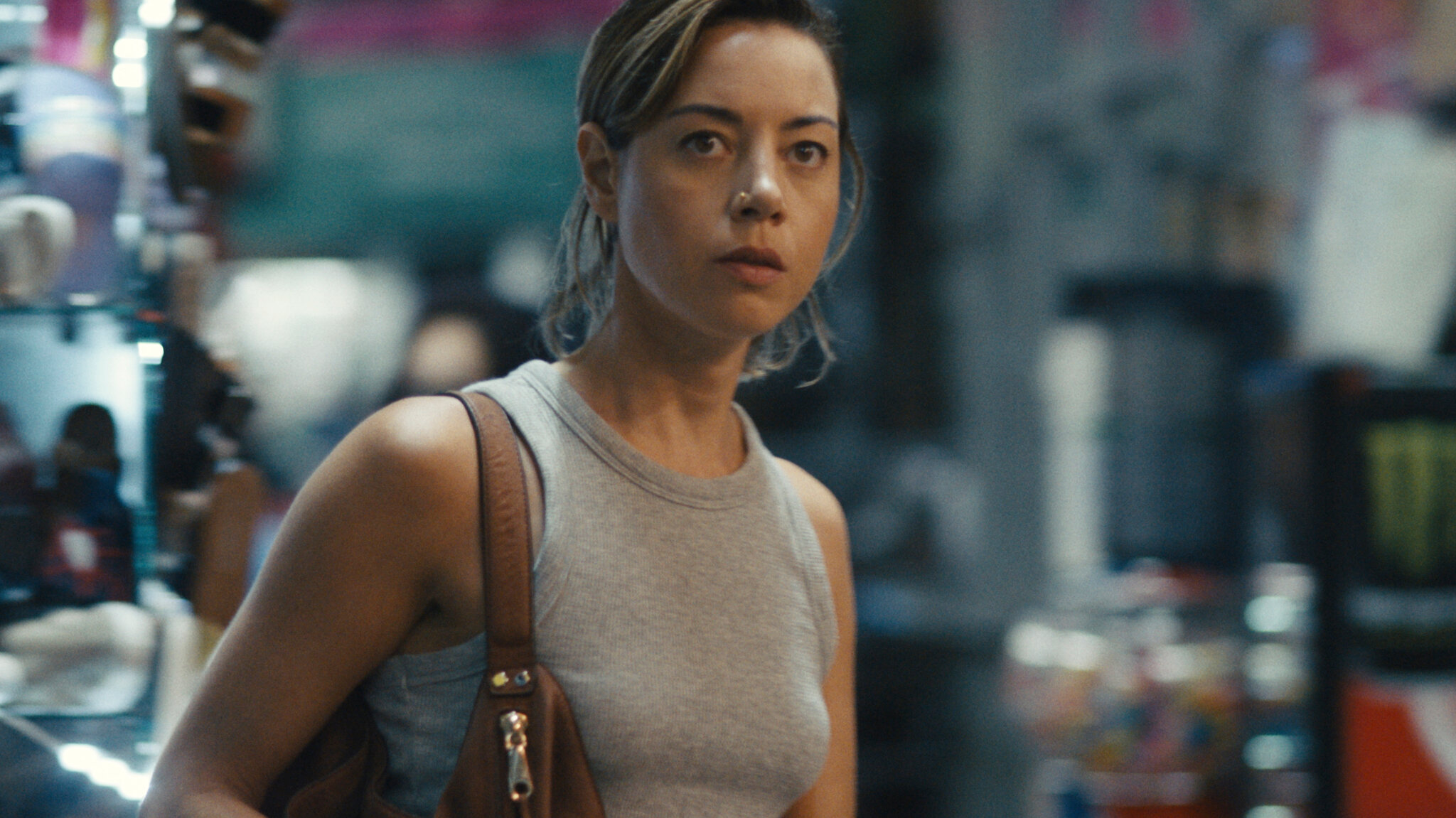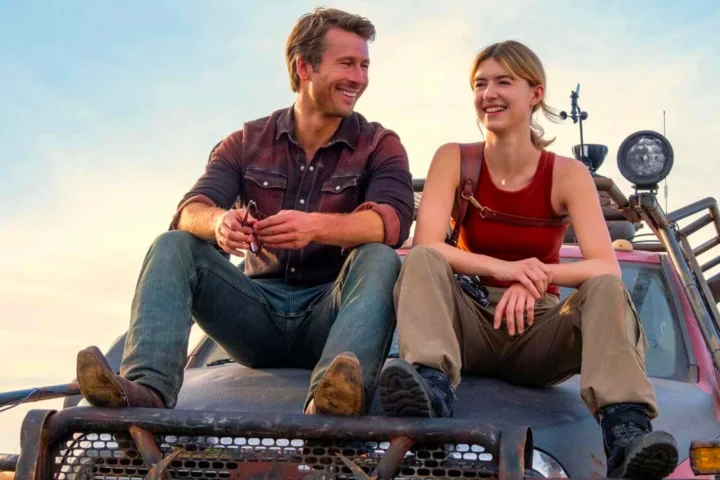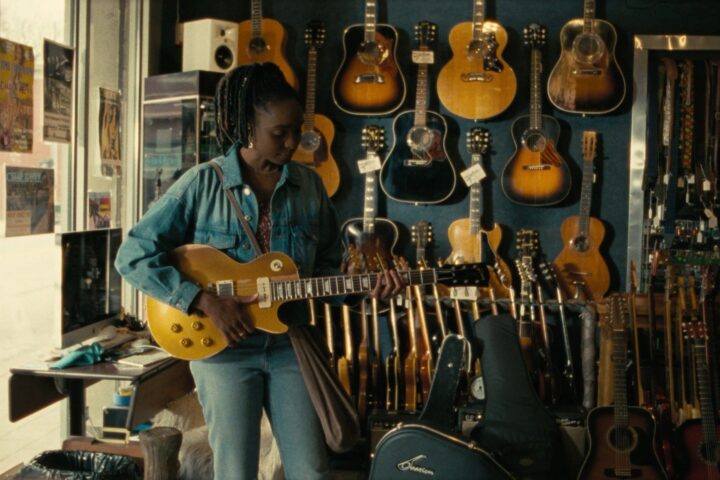What do you do when you’ve played by the rules and every potential opportunity is denied? You still need money, right? In writer-director John Patton Ford’s Emily the Criminal, one of 2022’s very best movies, star Aubrey Plaza makes us believe that, depending upon one’s options, crime might actually pay, in a picture exploring how an ordinary and well-meaning person might be so beaten down by the harsh realities of an unfair economy that she sees no alternative but the con to make ends meet.
Plaza, a versatile and capable actress tearing into a substantially dramatic role, plausibly gives us a young woman at odds with a system that cynically refuses to cut her a break. Deploying the classic screenwriting device of backing your lead character into a corner with successive obstacles to overcome, Plaza’s college dropout Emily is seventy-thousand dollars in student loan debt and can barely pay the interest, blocked from potential employment as a graphic designer by a past felony and struggling to make ends meet as a gig working, food delivery person around greater Los Angeles.
An escape appears in the unlikely form of a low-risk credit card fraud scheme, which initially seems simple enough—purchase a television with a bogus card, carry it out of the store and walk away with cash. The ring boss, Youcef (a magnetic Theo Rossi) takes a liking to Emily, who for a moment seems the perfect operative—young, attractive, upwardly-mobile looking, cool under pressure—and graduates his protege to bigger cons. In one terrifying sequence, a nearly botched automobile theft suggests the danger to come in a film that plays like a latter-day, gritty L.A. noir. At times I was reminded of such darkly engrossing crime films like The Grifters (though Emily’s ambitious to be her own crime boss exceed those of that picture’s Anjelica Huston, the hardboiled, short con pro).
As Emily develops a knack for the swindle and grows her schemes grow bigger, both the picture and performance grow darker. Yet even as the money (and danger) rolls in, she never abandons her intentions to go straight, if only the corporate world would have her. In a riveting late film job interview scene, Emily takes down a great Gina Gershon as a hard-charging potential boss offering an unpaid design internship: “When you’re paying me, you can tell me what to do. Until then, you can shut the fuck up.” Is asking someone to show up for an internship and work for free over several months—with no promise of a future full-time position—any less unethical than thieving televisions? Which one is truly victimizing?
Ford raises the personal stakes as Emily and Youcef form a tentative relationship, but can there be honor between thieves? Is Youcef’s brother, Khalil (Jonathan Avigdori) who disapproves, to be trusted? In a terrifically tense moment, Youcef introduces Emily to his aged mother, but the sweetness turns to tension upon Khalil’s unexpected arrival. This triangle of family, crime, love and money will resolve itself in the film’s final third, but not as we expect.
As Emily transitions from working stiff naivete to confident career criminal, Plaza convinces us that such an unorthodox path to survival might be her last best chance. But Emily the Criminal doesn’t glamorize crime; on the contrary, it presents a dangerous underworld of on-the-take operators not above breaking into your home, stealing your dog, beating you bloody and, pehaps, to death, all just part of the gamble. The picture is less apologia for unlawful transgressions (it’s not The Bling Ring, by a long shot) and more an examination of a world rigged against those without means, forced into desperate measures.
Thirty-eight-year-old Plaza (who looks eternally twenty-four), the sardonic comedienne well known in the independent film world for such outings as Scott Pilgrim vs. the World (2010), Damsels in Distress (2011), Safety Not Guaranteed (2012), Ingrid Goes West (2017) and the uproarious The Little Hours (2017), is often referred to as an “indie queen” or perhaps a cult movie actress. With a signature deadpan, smartest-in-the-room persona that has well served her career, Plaza’s wide-eyed, looking through you, smart aleck brand has been patented to perfection.
Here, Plaza’s large brown eyes observe both the professional corporate success of her best friend as well as the escalating tensions of her shadow life, register longing, resignation, fear and ultimately brute resolve.
Give her the Independent Spirit Award and a deserved Oscar nod.
4 stars.



